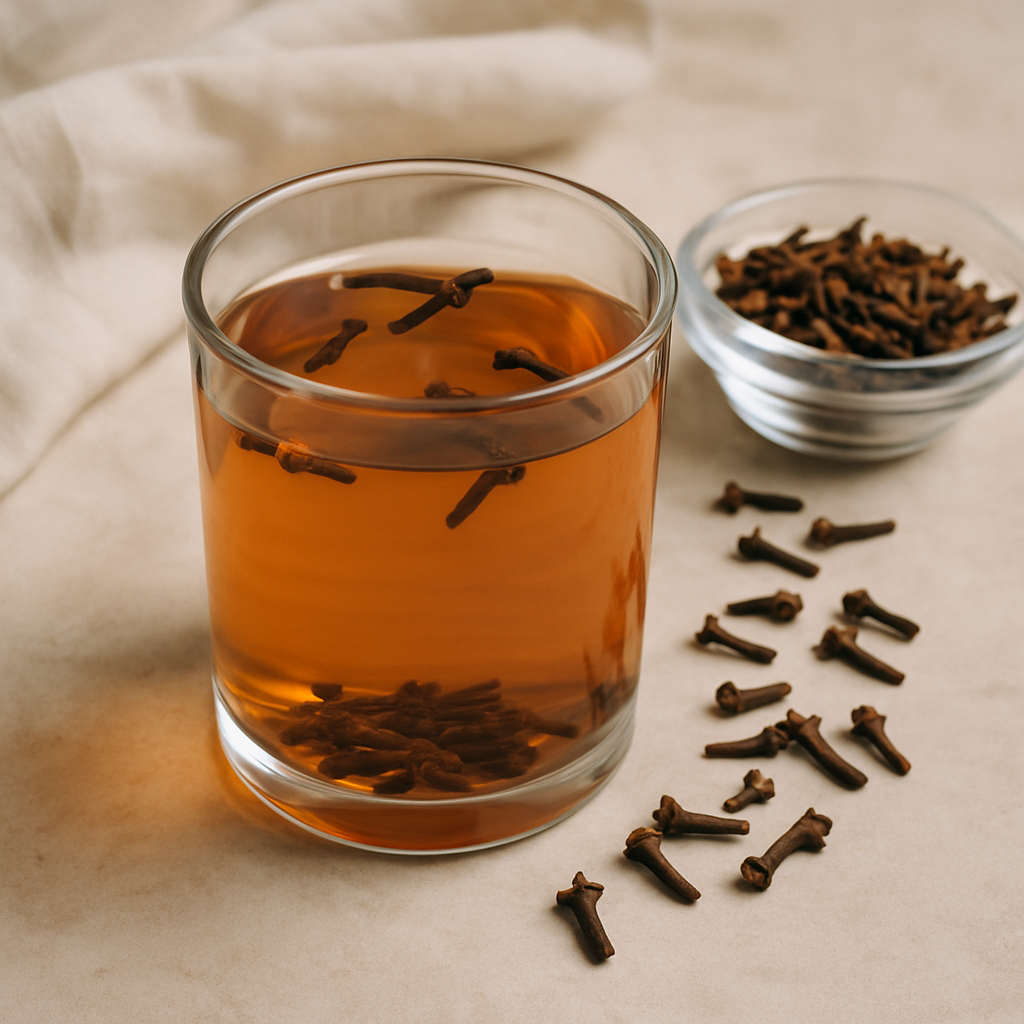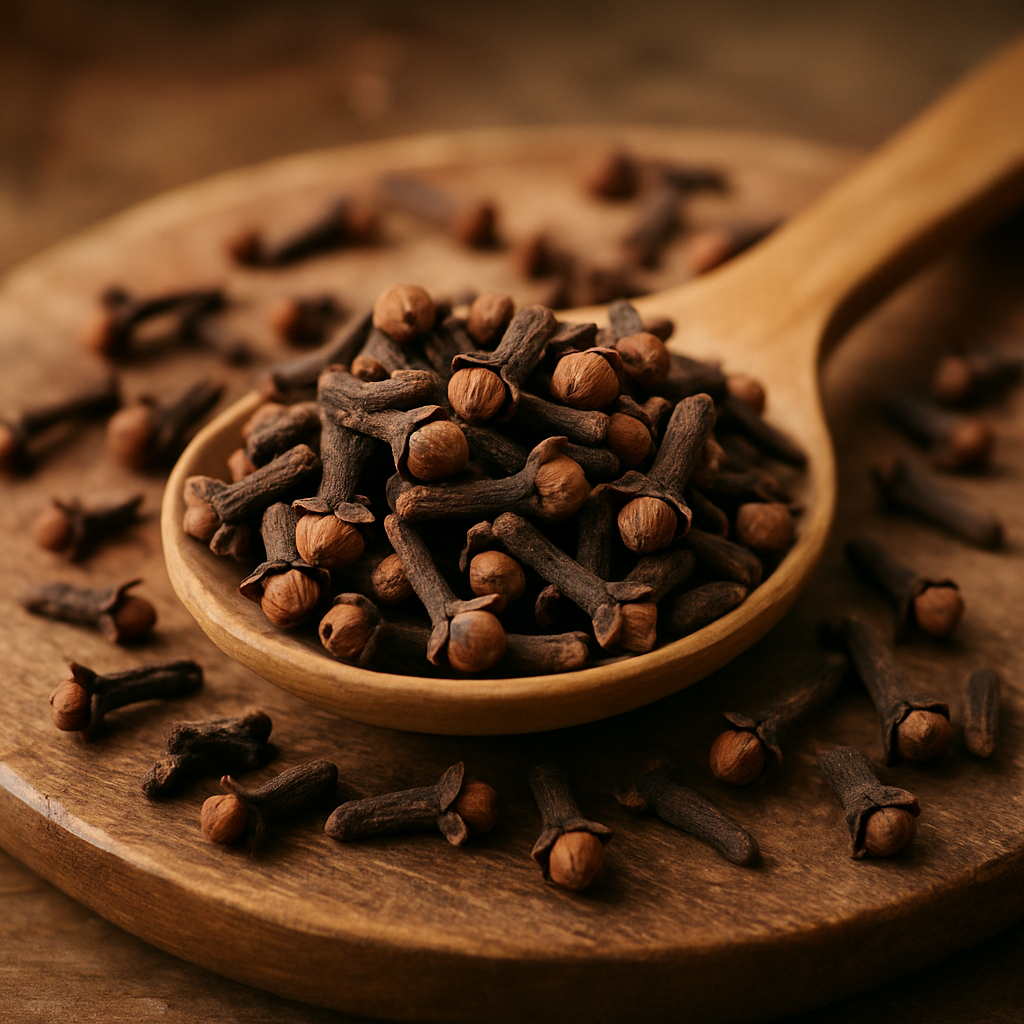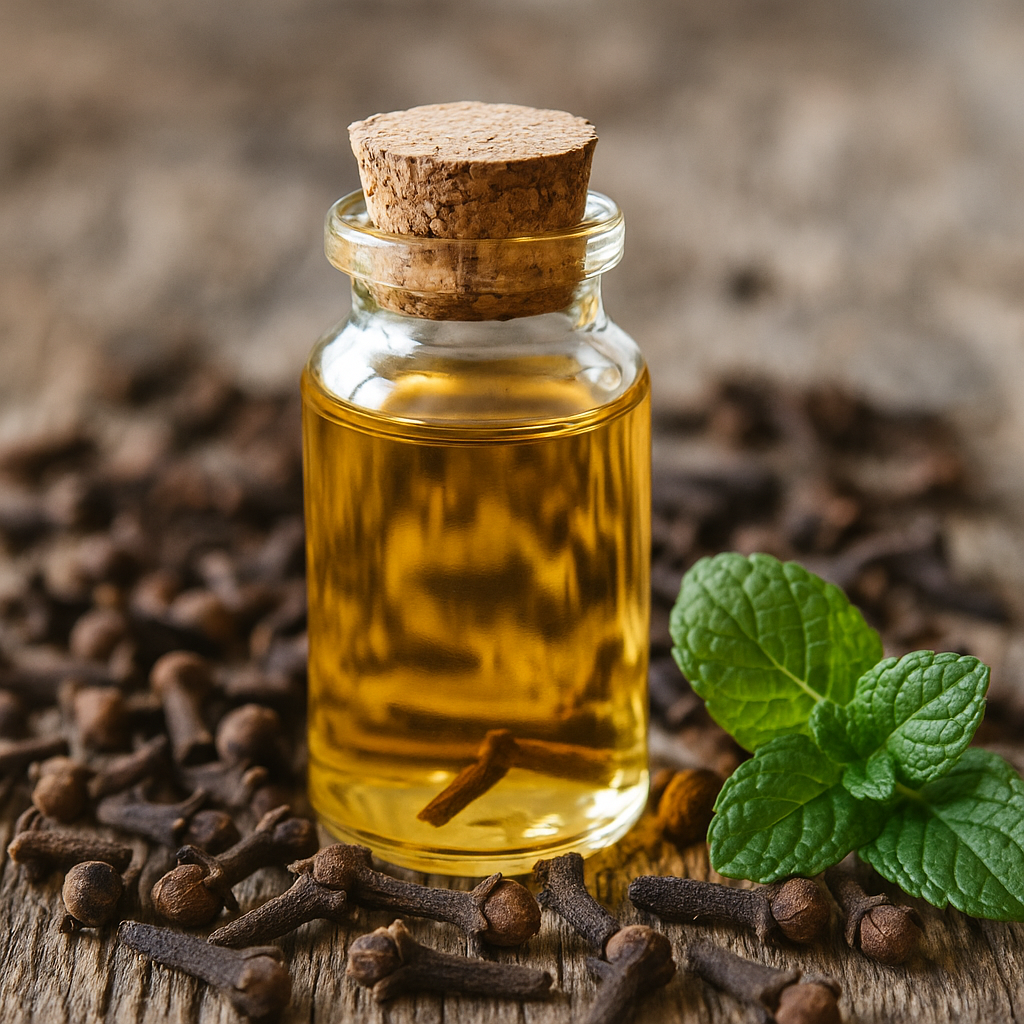Ask Ayurvedic doctor a question and get a consultation online on the problem of your concern in a free or paid mode. More than 2,000 experienced doctors work and wait for your questions on our site and help users to solve their health problems every day.
Is Clove Good for Health: Ayurvedic Benefits and Modern Uses

Is clove good for health? For centuries, people in Ayurveda and folk medicine have sworn by this tiny spice for its powerful healing qualities. In modern times too, research is catching up, highlighting the clove health benefits that go beyond flavoring curries or teas. Whether you’re curious about the benefits of clove water, the role of clove oil, or simply wondering if clove is good for health in everyday life, you’re in the right place.
This article will walk you through Ayurvedic wisdom, modern scientific perspectives, and practical tips on how to use clove in your daily routine. From digestion to dental care, and even sexual vitality, cloves pack more than just a pungent aroma. And while some people overdo it—thinking more is always better—it’s really about balance. Let’s explore the many ways clove can support your health and well-being.
Clove Is Good for Health or Not: Ayurvedic and Modern Perspectives
In Ayurveda, clove (known as Lavangam) has long been used to balance the doshas, especially to calm excess Kapha. It’s believed to improve circulation, sharpen digestion, and even clear out toxins. Ancient texts mention clove’s warming nature, which is why it’s often mixed into herbal remedies during cold seasons.
Modern science isn’t far behind. Studies point out clove’s high content of eugenol, an antioxidant compound that helps reduce inflammation and fight harmful bacteria. So, is eating clove good for health? Yes—but moderation is the golden rule. One or two cloves chewed after a meal can help digestion, but chewing a handful might irritate your stomach.
Don't wait or self medicate. Start chat with Doctor NOW
Clove Health Benefits and Uses
Clove Benefits for Health: Digestive, Anti-Inflammatory, and Immune Support
Clove benefits for health go beyond what most people realize. Traditionally, a few cloves were added to food not just for taste but to aid digestion. Its natural oils stimulate enzymes that break down food, making it easier for the stomach. Some even use it as a quick remedy for bloating or mild indigestion.
But that’s not all. The anti-inflammatory properties make it helpful for people dealing with joint stiffness or seasonal colds. A warm tea with a pinch of clove can ease throat irritation, and it may give your immune system a gentle boost. It’s these multipurpose qualities that keep clove in both spice racks and medicine chests around the world.
Clove for Sexual Health and Vitality
Ayurveda also highlights clove for sexual health. It’s said to increase warmth in the body, improve blood flow, and gently stimulate energy. Some traditional remedies combine clove with milk or honey to enhance vitality. While modern medicine is more cautious about making bold claims, small studies suggest it could have a mild aphrodisiac effect. Still, it’s best seen as a supportive herb rather than a magic solution.
Clove for Dental Health: Traditional and Modern Applications
One of the most famous uses is clove for dental health. People have been biting into cloves for toothaches long before dentists existed. Eugenol, the main active compound in clove, has numbing properties that can temporarily relieve pain. Even today, dentists sometimes use eugenol in treatments.
Whether it’s fresh breath, gum health, or managing tooth discomfort, clove has proven itself time and again. But a little caution—placing clove oil directly on sensitive gums can cause burning if not diluted properly. That’s one of those areas where “natural” doesn’t always mean gentle.

Benefits of Clove Water and Oil
Benefits of Clove Water for Daily Wellness
Clove water might not sound like the most exciting drink, but it’s surprisingly popular in both traditional medicine and modern wellness trends. Simply soaking a few cloves overnight and drinking the infused water in the morning can bring a range of clove water health benefits.
For one, it acts as a mild detox. Many people report that it helps kickstart digestion and keeps bloating in check. Some say it even boosts their morning energy without the crash of coffee—though let’s be honest, it doesn’t taste as nice. But if you’re asking is clove water good for health?, the answer is yes, in moderation. Too much can make the flavor harsh and even irritate the stomach lining.
Another benefit is its effect on immunity. Because clove is naturally antimicrobial, drinking clove water may help defend your body against minor infections. Think of it as a simple, affordable, and natural habit that you can try without needing exotic ingredients or complicated recipes.
Benefits of Clove Oil in Ayurveda and Home Remedies
If clove water is gentle, clove oil is the powerhouse. Extracted from dried flower buds, clove oil is highly concentrated and must be used with care. In Ayurveda, it’s often recommended in tiny amounts, mixed with carrier oils or honey, for its strong healing properties.
Among the most praised benefits of clove oil is its role in pain relief. People dab diluted clove oil on sore joints, achy muscles, or even mild headaches. The warming sensation can ease tension and increase circulation.
Clove oil also has a big reputation in oral care. Dentists sometimes use it to soothe toothaches, and many DIY remedies still include it for gum infections. But again—dilution is key. Putting pure oil on sensitive skin or gums can do more harm than good.
Another lesser-known use is for respiratory relief. Inhaling steam with a drop of clove oil can clear nasal passages and help with seasonal allergies. Ayurveda often mixes it with other oils like eucalyptus to create a balanced remedy for breathing issues.

Ayurvedic Preparations with Clove
Clove Water Health Benefits in Ayurvedic Formulas
Ayurveda doesn’t see clove in isolation—it’s always part of a bigger picture. For example, clove water may be combined with ginger or cinnamon to make a warming tonic. This type of blend is especially useful in colder months, when digestion tends to slow down and the immune system needs extra support.
Some practitioners even recommend clove tea for balancing Kapha and Vata imbalances. It’s thought to stimulate digestive fire (Agni), which is central to overall health in Ayurveda. That said, Pitta types—those prone to acidity or heat in the body—are usually advised to take it sparingly.
Herbal Combinations with Clove for Overall Health
Clove often works best in synergy with other herbs. A classic mix is clove, cardamom, and fennel, which supports digestion after heavy meals. For colds, clove is combined with black pepper and tulsi (holy basil) to clear mucus and ease coughing.
When it comes to clove for sexual health, traditional Ayurvedic formulas might blend it with saffron or nutmeg for enhancing vitality and energy. While these combinations are not miracle cures, they do showcase the spice’s versatility.
The beauty of Ayurvedic practice is that it sees clove not just as a spice but as a part of a whole system designed to balance body, mind, and spirit.

Conclusion
So, is clove good for health? Both Ayurveda and modern science give a pretty confident yes. From aiding digestion to supporting immunity, easing dental discomfort, and even gently boosting vitality, the clove benefits for health are wide-ranging. Whether you prefer drinking clove water, using clove oil, or simply chewing a clove after meals, this humble spice can make a real difference when used wisely.
Still, balance matters. Too much clove—whether in raw form, oil, or water—may cause irritation or side effects. The key takeaway is that clove works best as a supportive part of your lifestyle, not as a replacement for healthy habits or medical care.
What makes cloves truly fascinating is how they bridge the gap between old and new. Ancient Ayurvedic texts praised their warming, detoxifying qualities, while today’s lab studies confirm their antioxidant and antimicrobial effects. It’s a rare spice that fits naturally into both a grandmother’s kitchen remedy and a modern scientific journal.
If you’re looking for a natural way to improve digestion, freshen your breath, or give your immune system a little push, clove deserves a spot in your wellness routine. And because it’s so affordable and accessible, anyone can try it without needing special supplements or expensive products.
So the next time you sip spiced tea, chew a clove after dinner, or wonder about the benefits of clove water, remember—you’re not just enjoying flavor, you’re tapping into centuries of healing tradition.
And maybe it’s time to share this with a friend or family member too. After all, helpful knowledge is best when it’s passed along!
FAQs
Can I drink clove water daily?
Yes, but in small amounts. A glass of clove-infused water once a day can offer gentle detox and digestive support. However, drinking it too often or too strong may upset your stomach. If you notice irritation, scale back to a few times a week. Always listen to your body—it usually knows when enough is enough.
What are the benefits of clove oil for health?
Clove oil is known for its strong antimicrobial and pain-relieving properties. It’s commonly used in dental care to soothe toothaches and sore gums, and in Ayurveda it’s applied (diluted!) for muscle or joint pain. Some even use it in steam inhalation for colds. Just remember—never apply pure clove oil directly to skin or gums without diluting, as it can cause burning.
Is clove safe for dental health care?
Yes, in fact, it’s one of the most traditional uses. Chewing a clove can freshen breath and reduce minor tooth pain temporarily. Dentists have long used eugenol, the active compound in clove, in certain treatments. But for persistent pain or infections, it’s no substitute for professional dental care. Use it as a helper, not a cure.
Final Thoughts
Clove is one of those rare ingredients that’s as valuable in medicine as it is in cooking. From spiced chai to Ayurvedic tonics, it shows up in countless forms around the world. With proven clove water health benefits, widely recognized benefits of clove oil, and its trusted role in clove for dental health, this spice earns its reputation as a wellness powerhouse.
If you’ve ever asked yourself, “is eating clove good for health?”—the answer is yes, but wisely and in moderation.
So why not try it? Brew some clove tea, make clove water, or keep a couple handy after dinner. A small habit, but one with the power to change how you feel day-to-day.

